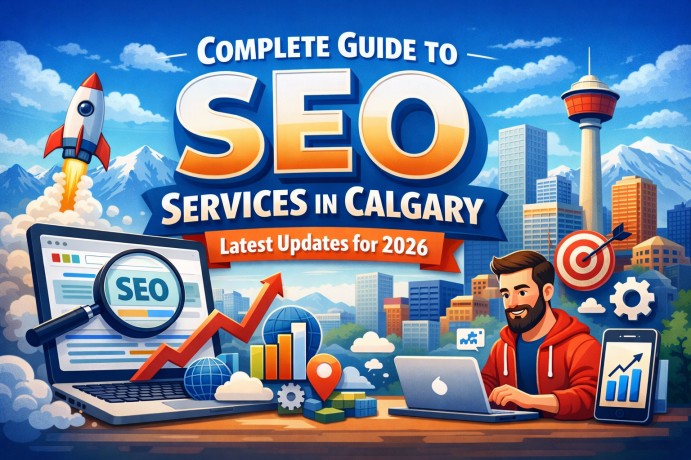In today’s digital age, small businesses face a unique challenge: standing out in a crowded online marketplace while also appealing to their local customer base. This is where Local SEO comes into play. By optimizing your online presence for local search, you can connect with potential customers in your neighborhood and drive more foot traffic to your store. In this comprehensive guide, we will explore the world of Local SEO and provide you with a treasure trove of tips and strategies to help your small business thrive in your local community.
Understanding the Importance of Local SEO
What is Local SEO?
Local SEO, or Local Search Engine Optimization, is the practice of optimizing your online presence to increase visibility in local search results. It’s about making sure your business appears when people in your area search for products or services you offer. Local SEO is a vital tool for small businesses that rely on a local customer base.
Why Local SEO Matters
- Local Intent: According to Google, nearly 46% of all searches have local intent. This means people are actively looking for nearby businesses, making Local SEO crucial for your success.
- Competing with Giants: Small businesses often compete with larger corporations. Local SEO levels the playing field by helping local businesses rank higher in local searches.
- Mobile Users: With the rise of mobile devices, people search for local businesses on-the-go. Local SEO ensures you’re visible to these potential customers.
The Fundamentals of Local SEO
Claim and Optimize Your Google My Business (GMB) Listing
Your Google My Business listing is your digital storefront. Here’s how to make it shine:
- Complete Your Profile: Fill out every detail, including your business name, address, phone number, and website. Make sure all information is accurate and up-to-date.
- Add High-Quality Photos: Showcase your products, services, and your physical location through high-quality images. Include photos of your storefront, products, and happy customers.
- Collect and Respond to Reviews: Encourage satisfied customers to leave reviews. Respond to all reviews, whether positive or negative, to show your engagement and commitment.
Optimize Your Website for Local Keywords
To rank well in local search results, your website needs to be optimized for relevant keywords. Here’s how to do it:
- Keyword Research: Identify local keywords relevant to your business. Tools like Google Keyword Planner and Ubersuggest can help.
- On-Page Optimization: Incorporate these keywords naturally into your website’s content, meta descriptions, and headers.
- Local Content: Create valuable, location-specific content, such as blog posts, that demonstrate your expertise in your area.
NAP Consistency
NAP stands for Name, Address, and Phone Number. Consistency in these details across all online platforms is critical for Local SEO. Ensure that your NAP information is the same on your website, GMB listing, social media profiles, and local directories.
Mobile Optimization
As more people use smartphones to search for local businesses, mobile optimization is vital. Ensure your website is mobile-friendly, loads quickly, and provides a seamless user experience on all devices.
Building a Strong Online Reputation
Online Reviews
Online reviews not only influence potential customers but also impact your local search rankings. Encourage happy customers to leave reviews on platforms like Google, Yelp, and Facebook.
- Respond to Reviews: Engage with reviewers by responding to their feedback promptly and professionally.
Citations and Local Directories
Citations are online mentions of your business’s name, address, and phone number. Listing your business on local directories and websites like Yelp, Yellow Pages, and TripAdvisor can boost your local visibility.
- Accuracy is Key: Ensure your NAP information is accurate and consistent across all directories.
Social Media Presence
Active participation in social media platforms can help you connect with your local audience and improve your online presence.
- Local Hashtags: Use local hashtags to target users interested in your area.
- Engagement: Respond to comments and engage with your audience to build a loyal following.
Advanced Local SEO Strategies
Schema Markup
Implementing schema markup on your website can provide search engines with additional context about your business, improving the chances of appearing in rich snippets and knowledge panels.
Local Link Building
Acquiring high-quality backlinks from local websites and influencers can boost your local authority.
Geo-Targeted PPC Advertising
Consider running geo-targeted pay-per-click (PPC) advertising campaigns to reach local customers.
Tracking and Measuring Your Local SEO Success
Google Analytics and GMB Insights
Use tools like Google Analytics and Google My Business Insights to track the performance of your website and GMB listing. Monitor metrics such as website traffic, conversion rates, and customer actions.
Local SEO Tools
Explore various local SEO tools such as Moz Local, BrightLocal, and Yext to streamline your efforts and gain valuable insights.
Conclusion
Local SEO is not just an option for small businesses; it’s a necessity. By implementing these strategies and staying consistent, you can ensure that your business thrives in your local community and attracts customers who are actively searching for your products or services. Invest time and effort in optimizing your online presence locally, and you’ll reap the rewards of increased visibility, foot traffic, and revenue. Your small business can indeed dominate your neighborhood online with the right approach to Local SEO.




